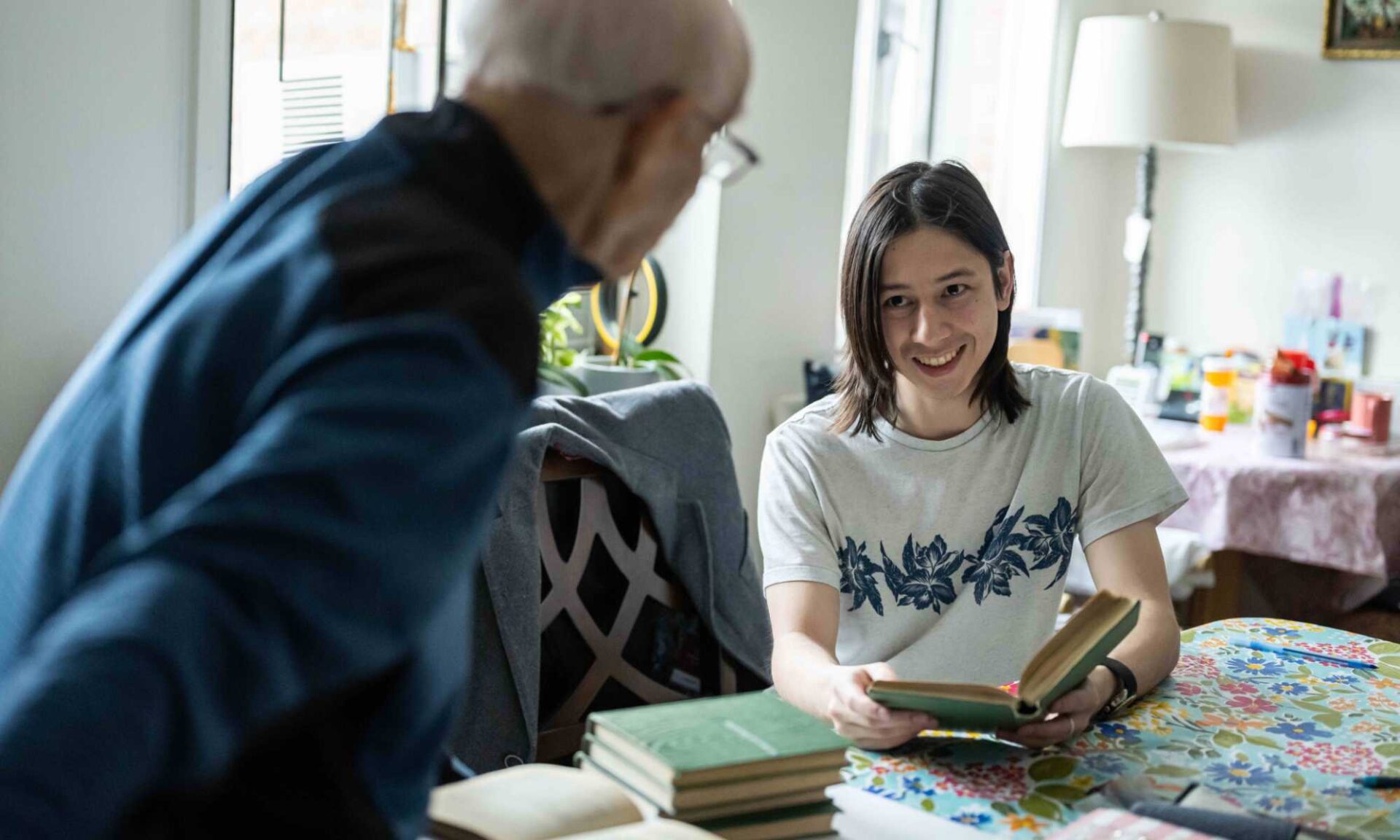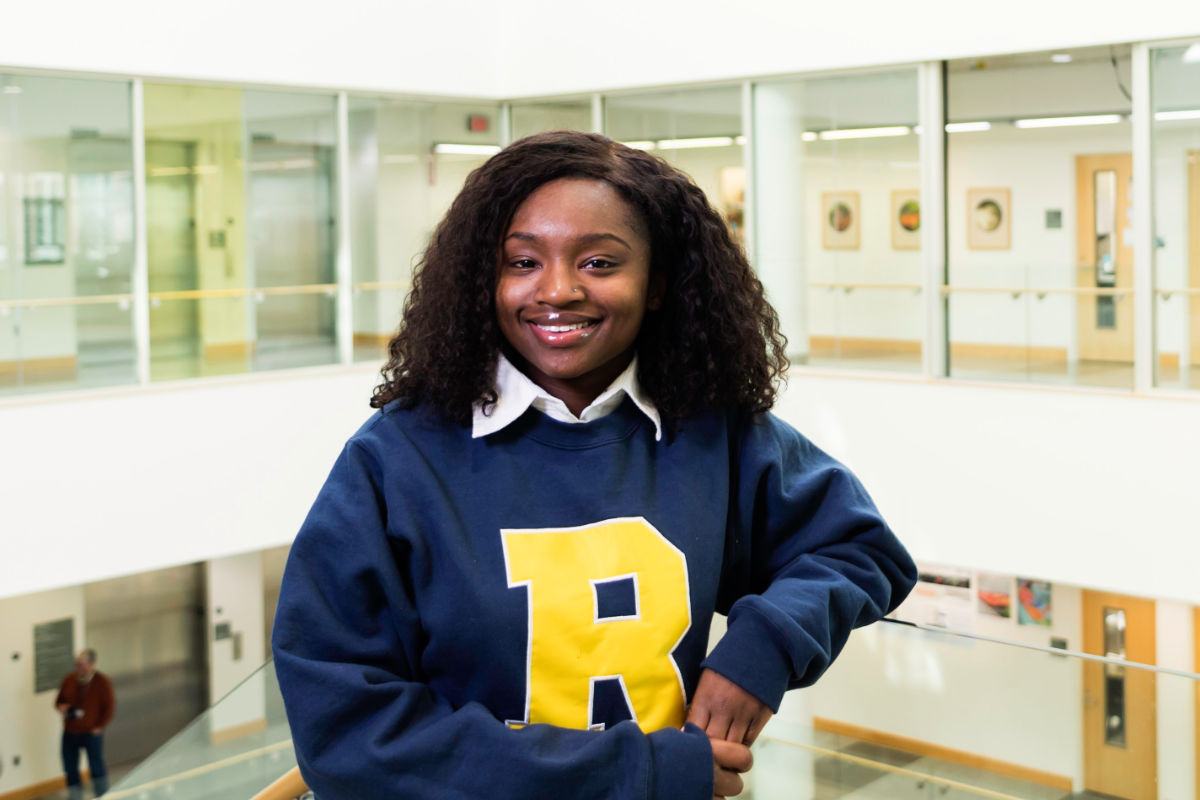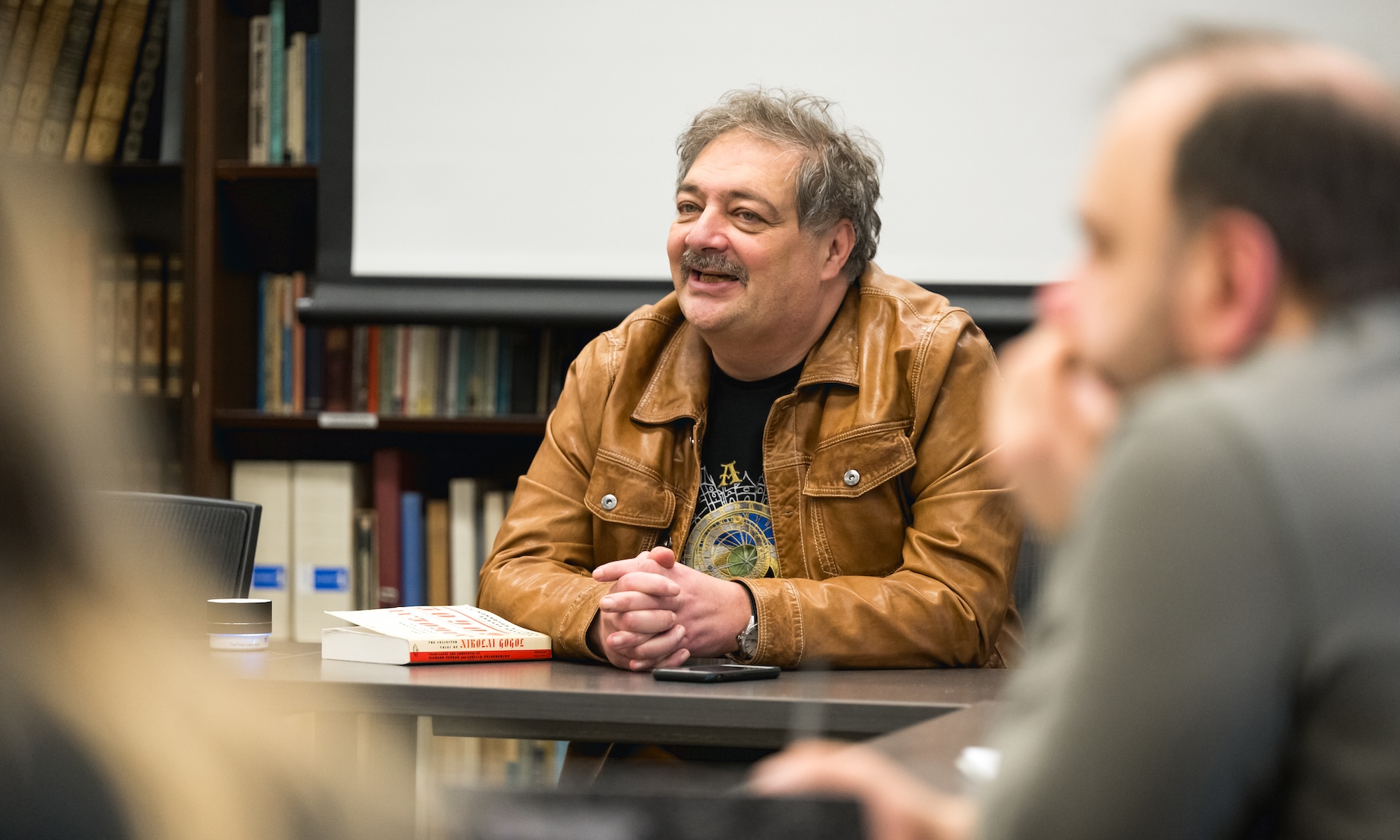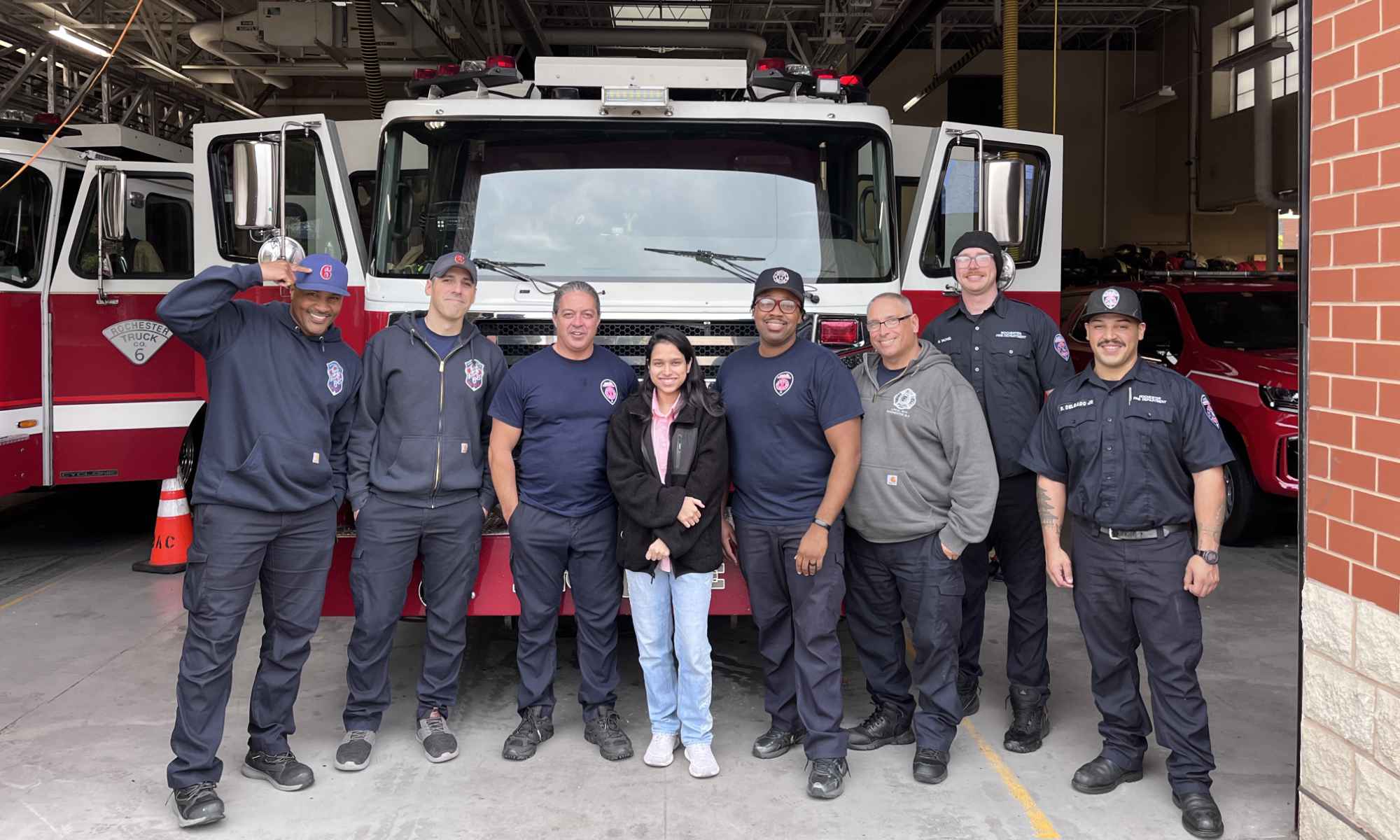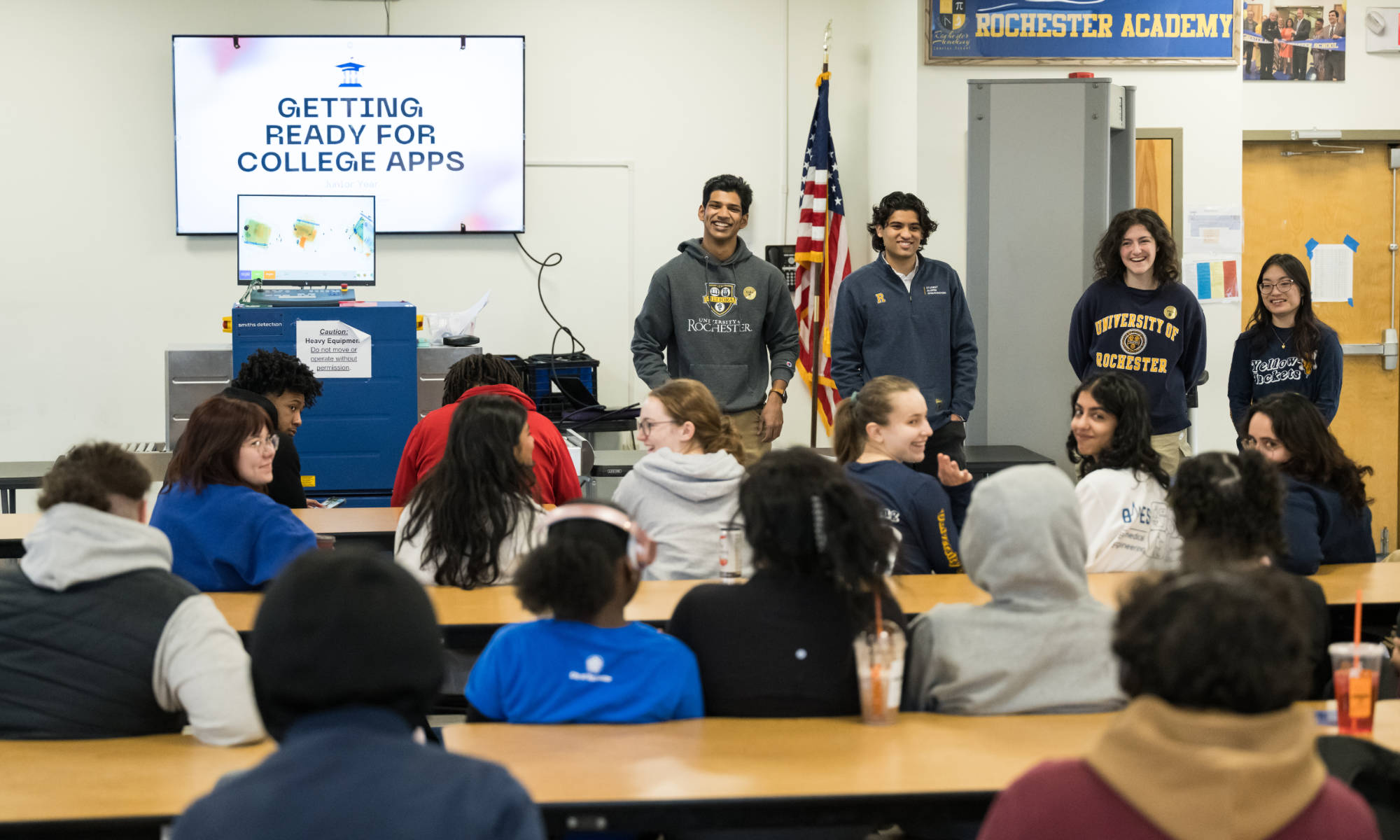Undergraduates learn language, culture, politics, and customs from Russian-speaking Jewish émigrés.
Acquiring the fluency, vocabulary, and cultural context necessary to navigate a second (or third) language takes time and practice. It also takes exposure to native speakers and their natural environment, ideally via a semester or year spent abroad.
But since the Russian invasion of Ukraine in early 2022, University of Rochester students haven’t been able to study in Russia—which had been a key component of the University’s Russian program for the last three decades.
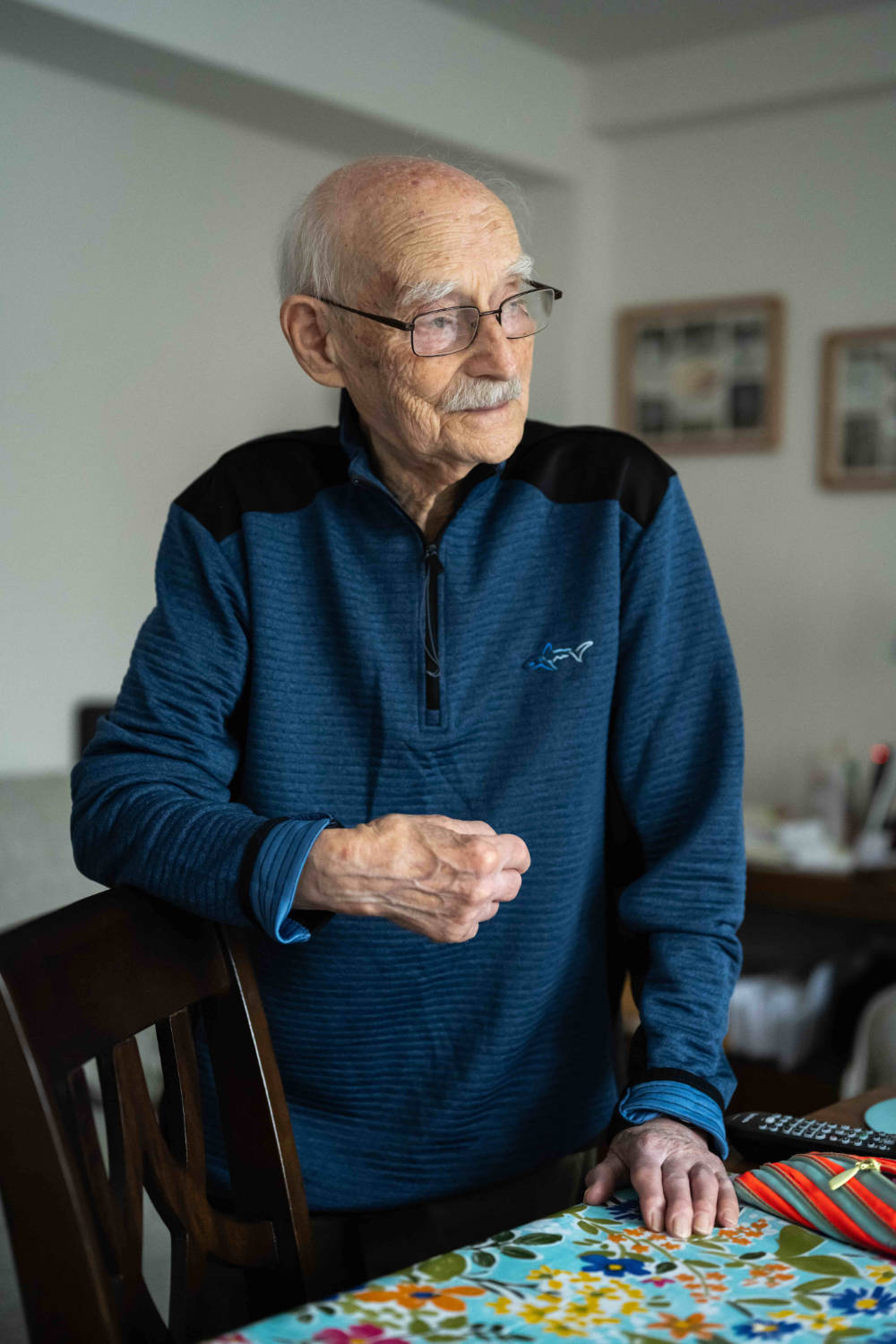
Yet as one door closed, another unexpectedly opened.
In fall 2023, the aging outreach coordinator from the Greater Rochester area’s Jewish Family Services (JFS) contacted the Department of Modern Languages and Cultures with an intriguing and timely offer: Would students be interested in practicing their language skills with Russian-speaking immigrants from countries of the former Soviet Union? Bonus: The native speakers live locally at the JFS apartment complex known as NORC (Naturally Occurring Retirement Community), which allows residents to age in place.
Students could sharpen their language skills while learning about the lived experiences of Jewish émigrés from the former Soviet Union. The émigrés, in turn, would teach students the language while enjoying each other’s company. The idea for a community-engaged language class, designed around semimonthly visits with the elderly residents, was born. The University’s Center for Community Engagement would even support the project by reimbursing students for the twice-monthly rideshare service they’d use to visit the NORC residents.
“It’s a win-win for all,” says Laura Givens, a professor of instruction in Russian. “The partnership offers our students a kind of study abroad experience without ever leaving Rochester.”
RUSS 156: Russian Language Community-Engaged Practicum goes beyond mere language practice. “The program fosters meaningful intergenerational, cross-cultural friendships between students and members of the Rochester community, most of whom are low-income, isolated, and have limited English language skills,” says Givens.
Quite a few of the elderly residents are Holocaust survivors, willing to talk to the students about their lives as Jewish children under Nazi occupation during the Second World War.
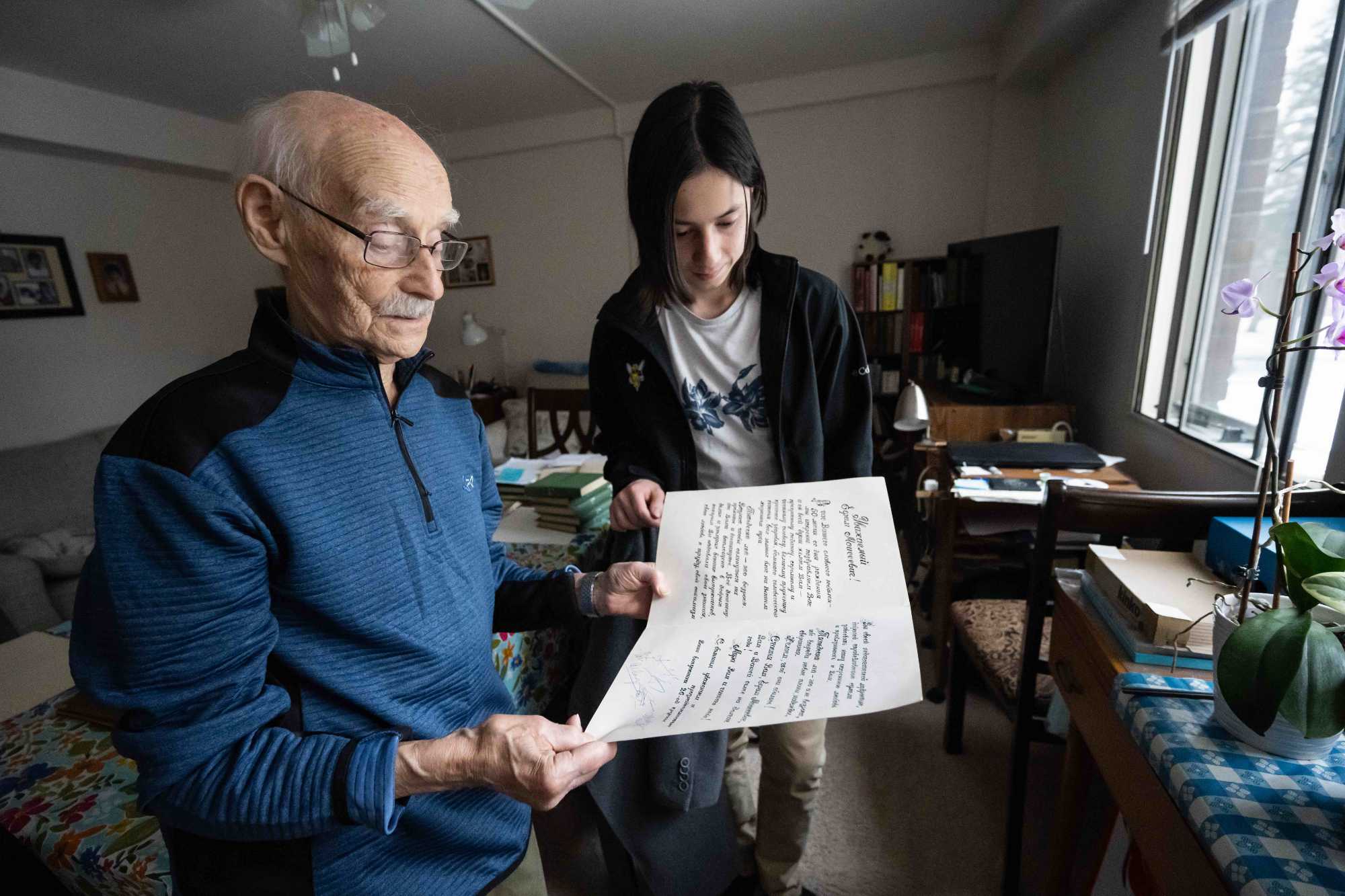
Frequently, the residents reminisce about their families, former jobs, and lives prior to immigrating to the United States.
“I can’t stress enough how meaningful the visits to JFS have been,” says Aaron Do ’26, a double major in Russian and music. “It’s an amazing opportunity to immerse oneself in the culture that we study to learn the little things about household life,” adds Do, who is part of the Guaranteed Rochester Accelerated Degree in Education (GRADE) program, a five-year combined undergraduate and graduate degree offered with the Warner School of Education and Human Development.
Do has paid regular visits to NORC resident Yefim Ravin, who came to the United States 32 years ago from Belarus. Ravin, a former physics professor, sometimes reads Russian poems with Do.
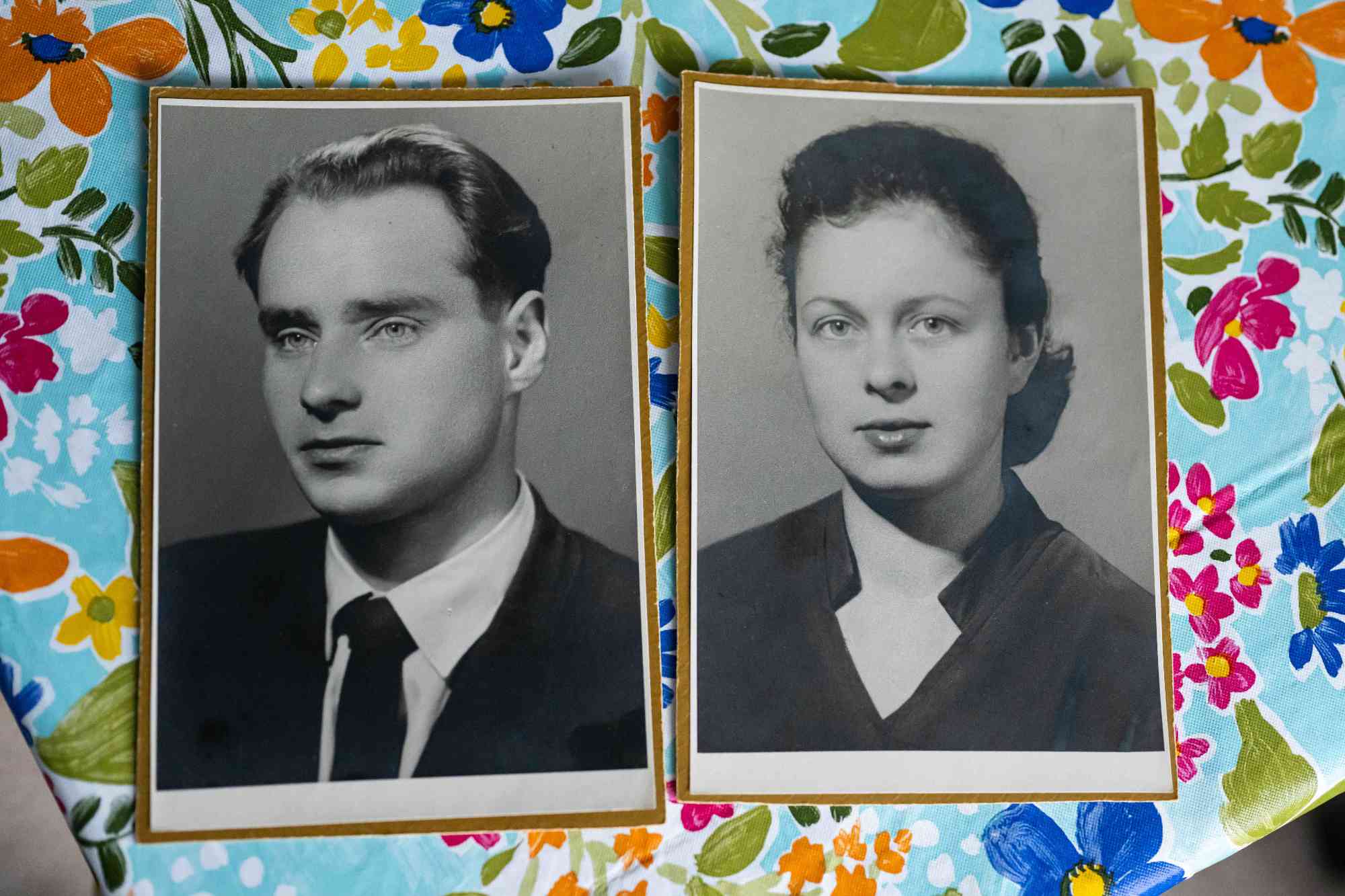
“I don’t just enjoy speaking,” says Ravin. “I also enjoy listening, particularly in this setting [at the dining table at home] because students are open-minded.”
While the emphasis of the two-credit course is on the practical side, Givens meets weekly with her students to discuss language challenges and rehearse narratives ahead of the next visit, often through role play. Class readings focus on the Nazi occupation during World War II, the subsequent life of Jewish citizens in the Soviet Union with its rampant antisemitism and state-sponsored discrimination, and the chaos in the 1990s following the collapse of the USSR.
Says Do, “I never could have expected the depth of understanding and emotional connection that I now share with my resident pairings at JFS.”
A version of this story appears in the spring 2025 issue of Rochester Review, the magazine of the University of Rochester.


